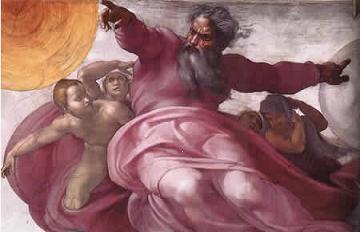What is wrath? 
In human terms, wrath is a forceful, often vindictive anger. It is often expressed through punishment or vengeance as a manifestation of that anger. Wrath is brought to bear upon one who commits an offense until the offender has met the punishment and has been made to pay for the offense.
What is the wrath of God?
The “wrath of God” is a phrase which denotes our understanding of God’s activity against sin. It expresses an important attribute of God—that God is holy and good and rejects everything which is not. The apostle Paul claims that God’s wrath is a divine reaction to human sin.
“The wrath of God is revealed from heaven against all ungodliness and wickedness of those who by their wickedness suppress the truth.” (Romans 1:18)
“But by your hard and impenitent heart you are storing up wrath for yourself on the day of wrath, when God’s righteous judgment will be revealed.” (Romans 2:5)
The divine wrath to which Paul refers is a means of underscoring how seriously God takes sin. We believe that the divine reaction to human sin expresses two distinct, yet inseparable aspects of God’s being—God’s righteousness and love.
How is the wrath of God an expression of divine righteousness?
The wrath of God (as presented in Scripture) cannot properly be understood apart from the righteousness of God. According to the prophet Isaiah, “the Lord of hosts is exalted by justice, and the Holy God shows Himself holy by righteousness” (Isaiah 5:16).
Presbyterians believe that God does not simply ignore sin—God is not indifferent to it. The wrath of God is an expression of God’s righteousness in that God refuses to let us get by with the unjust actions which we inflict upon others (and ourselves). God’s wrath is a righteous wrath. If any judgment of our sins is just, it is God’s. God’s wrath is turned against our sinfulness in order to call us back to righteousness for our own good and for the good of God’s creation. The wrath of God means that God judges and disciplines us in order to help us, and to put an end to the self-destructive path which we have chosen, and to set us on the right path again.
How is the wrath of God an expression of divine love?
Just as the wrath of God cannot properly be understood apart from righteousness, so also the wrath of God cannot be understood apart from the love and mercy of God. According to the Old Testament, “the Lord is merciful and gracious, slow to anger and abounding in steadfast love” (Psalms 103:8). And, in the New Testament, we specifically find that “God is love” (1 John 4:16).
We believe that the wrath of God is an expression of God’s love because it means that God cares about us. God cares enough to refuse to let us get by with our sin. God’s wrath is a loving wrath. When we refuse to love God and our neighbors as ourselves, we not only sin against God, but we also deny our own humanity and hurt ourselves. God’s wrath is turned against our sinfulness in order that we may be reconciled to God and to each other.
How do we experience the wrath of God?
As men and women resist God’s righteousness and love, they experience that righteousness and love as wrath and condemnation. The wrath of God is not the vindictive indignation of an angry God Who must be appeased. It is not an animosity on God’s part. It is not an experience of God’s anger. Rather, the wrath of God is what one experiences as the effect of rejecting God’s offer of love and righteousness.
Presbyterians believe that the ultimate expression of God’s love and righteousness is Jesus Christ.
“The righteousness of God has been disclosed . . . through faith in Jesus Christ for all who believe.” (Romans 3:21-22)
“But God proves His love for us in that while we still were sinners Christ died for us.” (Romans 5:8)
Accordingly, through Jesus Christ, we are saved by God’s righteousness and love. Through Christ, “we are saved . . . from the wrath of God” (Romans 5:9).
RETURN TO WHAT WE BELIEVE

 Copyright © 2011-2014 First Presbyterian Church, Richmond, KY. All rights reserved.
Copyright © 2011-2014 First Presbyterian Church, Richmond, KY. All rights reserved.